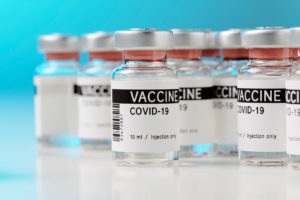Can My Health Care Employer Require Me to Get the Coronavirus Vaccine?
The coronavirus vaccines have arrived. The U.S. Food and Drug Administration has approved two for emergency use. One is from Pfizer-BioNTech and the other is from Moderna.
Many of these initial doses are going to health care workers. But given how fast the vaccines were created, as well as the political involvement in the vaccine development process, there is some unease when it comes to getting the coronavirus vaccine.
So this brings up the question of whether an employer can force its employees to get the coronavirus vaccine. The short answer is yes, but there are potential exemptions to this requirement.
In this blog post, we’ll briefly discuss two of these major exemptions. But if you want a more detailed analysis into whether your employer can force you to get the vaccine, a Maryland employment lawyer from the Law Firm of J.W. Stafford will be more than happy answer your questions
The Vaccination Requirement for Health Care Workers
Even before the coronavirus arrived, requiring health care workers to get vaccinated was an often litigated issue. This shouldn’t come as a major surprise given the practical need to have health care professionals get the necessary vaccines to keep patients and coworkers as safe as possible.
Despite a clinic, nursing home, or hospital’s need to have its workforce vaccinated, there has still been significant litigation from employees who do not wish to get vaccinated, such as from the seasonal flu. In many of these cases, the employees argued that taking the vaccine went against their religious beliefs.
Exemption #1: Religion
Most employees who use religious grounds to oppose an employer’s vaccination requirements will rely on Title VII of the Civil Rights Act of 1964 (Title VII). Title VII protects employees from a wide range of workplace discrimination, such as religion.
Title VII allows an employee, even one working in the medical industry, the right to refuse an employer-mandated vaccine if it would go against their religious beliefs. But to use this exemption, the employee must prove three things:
- The employee’s beliefs are religious;
- The religious beliefs are sincerely held; and
- The exemption would not place an undue hardship on the employer.
Our Maryland employment lawyer knows that the first element is easier to meet than you might expect. While political, economic, personal or philosophical beliefs do not count, beliefs that do not belong to a traditional church or sect may still be considered religious. A belief can be religious even if it’s new or held by only a handful of individuals.
The second element is often assumed by a court and sometimes assumed by the employer. However, there are situations where an employer may have reason to suspect that the employee’s request might be for non-religious reasons.
The third element is where employees face the most difficulty. A religious accommodation in the form of a vaccine exemption can constitute an “undue hardship” if it places more than a minimal burden on the employer’s operations.
When workers are in direct contact with very sick patients, it’s easy to see how allowing a worker to go without a vaccine could cause significant harm to patients, coworkers and the general public.
But depending on the worker’s job duties, it’s possible that an accommodation wouldn’t impose an undue burden on the employer. For example, allowing the employer to wear a face mask while at work.
In some situations, an employee might have a medical reason for not wishing to get a vaccine.
Exemption #2: Medical
If an employee wants to decline a vaccine for medical reasons, they will likely use the Americans with Disabilities Act of 1990 (ADA). The ADA would allow an employee to forego an employer’s vaccine mandate if the employee can demonstrate that they have a disability that’s recognized by the ADA and the requested accommodation for that disability would not place an undue hardship on the employer.
A mental or physical impairment that substantially limits a major life activity qualifies as a disability under the ADA. Courts and employers can broadly interpret what medical conditions qualify as an ADA-recognized disability, although legal opinions could differ. For instance, some courts will agree that an allergy to the vaccine is an ADA-recognized disability, but other courts will reach an opposite conclusion.
Even after the employee shows that they have a legally recognized disability, they still have to show that their requested accommodation would not place undue hardship on the employer. This is a higher burden for the employee to meet compared to the undue hardship requirement for religious accommodations under Title VII.
Under the ADA, an accommodation is an undue hardship if it imposes significant difficulty or expense on the employer. This is a very squishy definition because it must consider how an employer’s resources will be factored into the analysis. So what might constitute significant difficulty or expense for a business with 45 employees is different than a business with 4,500 employees.
Have More Questions About Coronavirus Vaccine Requirements? Speak to a Maryland Employment Lawyer Today
The above offers just a brief overview of how religious and medical exemptions can work when it comes to Maryland employment vaccine requirements. If you have additional questions or concerns, it might be a good time to get in touch with a Maryland employment lawyer, such as one from the Law Firm of J.W. Stafford.

